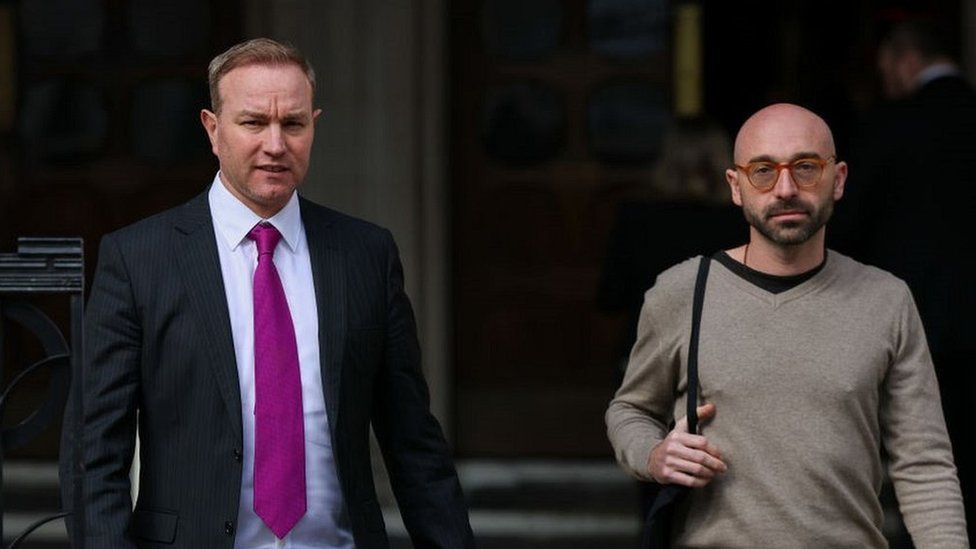Bankers jailed for interest rate rigging lose appeal
- Published

The verdicts for Tom Hayes (left) and Carlo Palombo (right) have been upehld
Two former bankers found guilty of rigging key interest rates have had their appeal against their convictions dismissed by the Court of Appeal.
Tom Hayes and Carlo Palombo were among 37 City traders prosecuted for manipulating rate benchmarks, Libor and Euribor.
Both men spent time in prison before being released in 2021.
Their case went before the Appeal Court after a judge in the US overturned similar convictions there.
The convictions hinged on whether the traders acted dishonestly by influencing the setting of key Libor and Euribor interest rates, or whether it was normal practice at the time.
In the original trial, Mr Hayes, who worked as a trader for UBS and then Citigroup, was described as the "ringmaster" of a plot to ensure Libor, a key interest rate, was set at levels that would benefit his own trades.
Mr Hayes, now 44, who has been diagnosed with autism, has spent the last nine years trying to overturn his conviction.
He succeeded in reducing his original 15-year jail sentence to 11 years, of which he served half.
In the US, rate rigging convictions, including for Mr Hayes, have been overturned after an appeal court said the US government had failed to provide evidence the traders had said anything false or broken any rules.
The cases of Mr Hayes and Mr Palombo were referred back to the UK Court of Appeal last year by the Criminal Cases Review Commission on the basis that the courts might prefer the view of the US judges.
But Lord Justice Bean, the lead judge on the appeal panel, said the US judgment "is not, and could not be, relevant" to the issues in English law.
Lawyers for Mr Hayes and Mr Palombo had raised concerns that judges had decided whether their conduct was permitted, but this should have been for the jury to decide. This was also dismissed.
The traders say they will now apply to take their cases to the Supreme Court.
Mr Palombo, who worked for Barclays, was convicted of seeking to influence where the Euribor interest rate was set to suit his trading positions.
The scandal around the setting of Libor and Euribor broke in 2012 just after the financial crisis, as a light was shone on the workings of the City of London.
The subsequent prosecutions in London and New York focused the blame on individual traders.
Juries were shown messages in which the traders had jokily discussed how easy it was to influence where the rate was set, for example, a message from Mr Hayes suggesting you just needed to offer the colleague responsible a Mars Bar.
Banks have paid $9bn in fines for manipulating Libor and Euribor but no senior executive has ever been prosecuted.
The UK is currently the only jurisdiction in the world that treats what traders did as criminal.
The BBC revealed evidence last year that indicated that central banks including the Bank of England and the central banks of France, Italy, Spain and the US intervened on a large scale in the setting of Libor and Euribor.
Related Topics
- Published24 May 2023
- Published22 May 2023